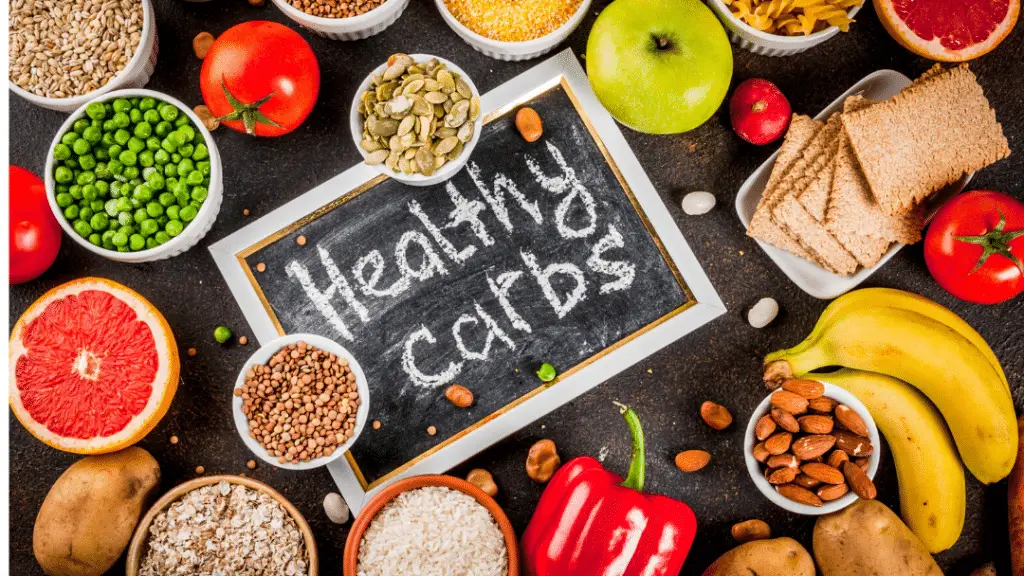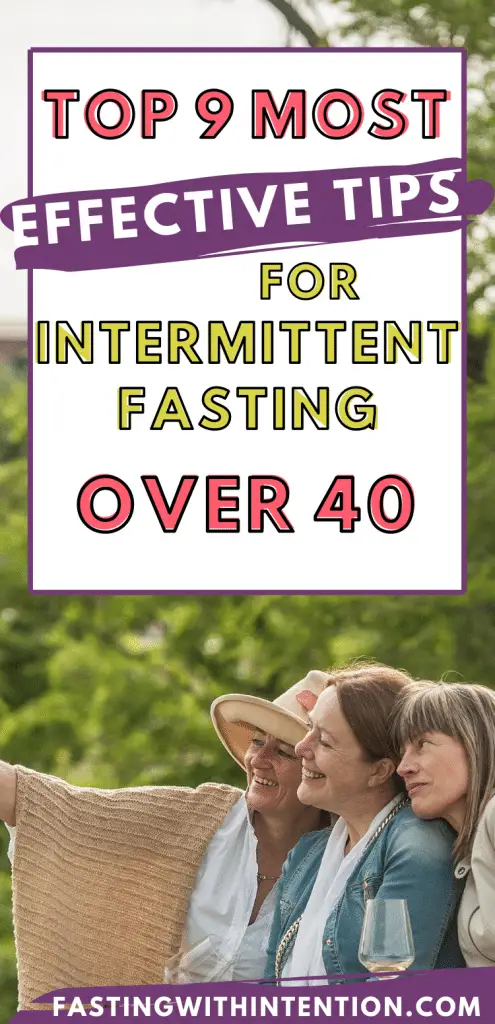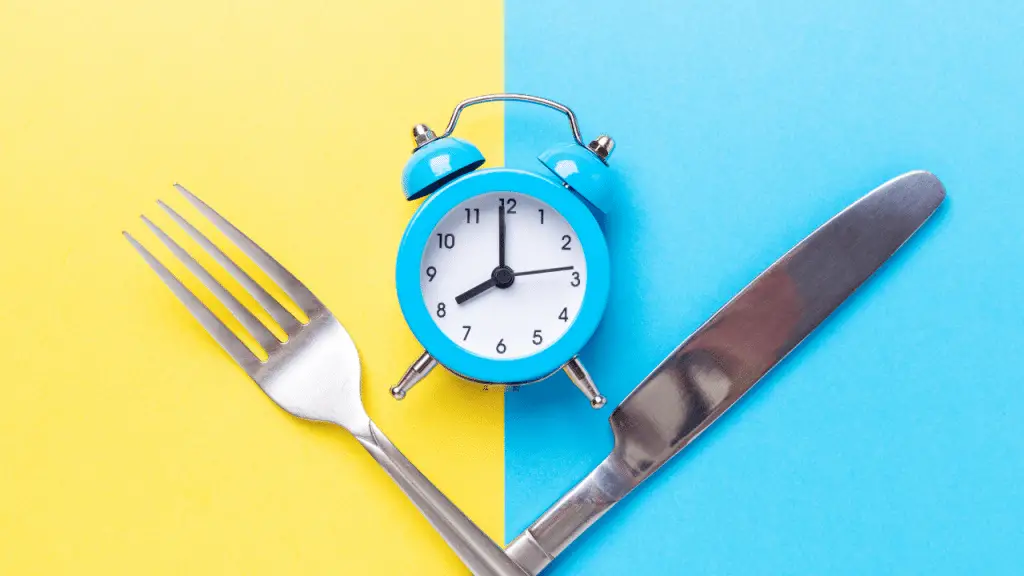My experience has been that intermittent fasting is the most effective and least restrictive way to lose weight after 40. In this post, I am going to quickly explain why intermittent fasting works so well, and give you my top 9 most effective tips for intermittent fasting over 40.
Why Intermittent Fasting Over 40 Works
There are a few factors that make intermittent fasting over 40 super effective for weight loss and general health. After 40, hormonal changes and insulin resistance make it hard to look weight and affect your energy level. Intermittent fasting contributes to resolving these issues. mostly by improving your insulin sensitivity.
How Insulin Resistance Affects Your Health
Some say that insulin resistance affects 1 out of 3 Americans. That’s a huge number! Insulin resistance means your cells are ignoring the signal the hormone insulin is trying to send out to metabolize glucose. As insulin resistance develops, your body needs to produce more insulin. Every time you eat, your body produces insulin. The more insulin insulin resistant you become the harder it gets for your body to process glucose as it should. You start craving food, you gain belly weight, you feel lethargic, moody, etc.
Top 9 Most Practical Tips for Intermittent Fasting Over 40
Now that you understand why intermittent fasting can help you achieve your health goals, let me give you my top 9 most practical tips to get you started.
1. Start With a Modified Fast
Yes, I have said it before, and I will say it again: if you haven’t already, you need to do a modified fast. A modified fast in a prolonged fast that includes food. We call it a fast because the severe calorie restriction (usually between 40%-50% your normal calorie intake) will give your body tremendous healing benefits. The idea is based on the Fasting Mimicking Diet that Dr. Valter Longo has researched extensively.
How to Do a Modified Fast
I recommend two types of modified fast:
- a 5-day modified fast based on the fasting mimicking diet, or
- a 10-day modified fast for those who cannot function when feeling hungry.
The main reason I like to suggest people get started with a modified fast is that it will help you kick-start the healing process and become fat-adapted without eating keto. Becoming fat-adapted makes fasting a lot easier because it means your body is able to switch between using glucose and ketones for fuel.
2. Reduce Your Carb Intake
People over the age of 40 are very likely to suffer from insulin resistance to some extent. That’s why I would recommend cutting down on your carb intake. I don’t think it’s necessary to go keto, although it may be a good idea, but you should keep your carb consumption below 150 grams a day most days. If you are a woman, you may find you crave carbs more at certain times during your cycle. If that’s so, I encourage you to listen to your body and eat more carbs on this day. With time, you will find these cravings will decrease.

3. Experiment With Different Intermittent Fasting Methods
You don’t need to pick an intermittent fasting method and settle on it. In fact, I recommend you don’t. Experiment, see what works and how you feel. Start with a shorter fasting window each day (like 12-14 hours) and move up gradually. Or pick a method like the 5:2 method or the Eat-Stop-Eat Method at first. For more help and guidance, read How to Decide Which Intermittent Fasting Method Is Best for You.
4. Eat Whole Foods
Sometimes, people get started with intermittent fasting and feel so hungry when they break their fast that they eat anything they can put their hands on. I don’t want this to be the case for you. Know in advance how you will break your fast and stick to it. Make sure you give your body to fuel it deserves. I like to break my fast with a green superfood shake and a large salad. Decide what you find nourishing and satisfying to break your fast each day. One of my most popular videos is my top 15 Best Foods to Break Your Fast, you may want to check it out.
5. Stay Hydrated
Staying hydrated is super important to reduce hunger and feel good while you are fasting (obviously the importance of drinking enough water doesn’t diminish after you start eating again). Until you start being able to remember to drink enough water and pay attention to thirst signals, it’s a good idea to aim drinking at least half your body weight in pounds in ounces of water.
6. Stay In Tune With Your Body
Pay attention to how your body is reacting to fasting. Learn to differentiate between hunger signals. This may take time and practice, most of us are used to not paying attention to our body (we don’t even go pee when we need to go pee). Eventually, you will be able to understand the difference between feeling hungry but feeling great and feeling hungry and needing to eat.
7. Stay Active
At first, you may find it harder to workout in a fasted state. You have two options:
- Work out after you start eating again
- Work out in a fasted state anyway
Your schedule and personal preference as far as the timing of your workouts go will come into play when you make this decision. The when doesn’t really matter as long as you do it. Also, remember that you may not be able to perform as well in a fasted state at first, but most likely you will find that you will get used to it. As your body becomes more efficient producing ketones and using ketones for energy, you will notice that your fasted workouts can be more intense.
8. Make Sleep a Priority
Sleeping enough is important for your overall health and also for supporting whatever weight loss goal you may have. Not getting enough sleep will contribute to overeating. I recommend you try to go to bed at the same time each night. Do something relaxing before going to sleep like reading a book. I also like listening to audio messages sometimes to help me go go sleep. As your mind focuses on your book or what you are listening to, you will be calmer and able to go to sleep easier. If sleep is an issue for you, you can also try this tart cherry concentrate (it helps your body produce melatonin, which improves your sleep).

9. Create a Sustainable Lifestyle
I talk about intermittent fasting as a lifestyle a lot in my blog posts because it’s important! Please don’t practice intermittent fasting simply to lose weight and give it all up when you reach your weight loss goal. Intermittent fasting over 40 (and before that age, of course) has so many health benefits, you don’t want to miss out! You may adjust your intermittent fasting method as you reach your health goals, but it doesn’t mean you need to quit intermittent fasting. Overtime, you may need to experiment further as your body and your needs change. That’s the fun part! You are becoming a biohacker!
Intermittent Fasting Over 40 for Weight Loss
In Summary
With these 9 tips, intermittent fasting over 40 should be a pleasant experience. You should be able to reach your health goals and be well on your way to living a long and productive life. That’s my goal, I want to give you to tools and the motivation to live your best life.




